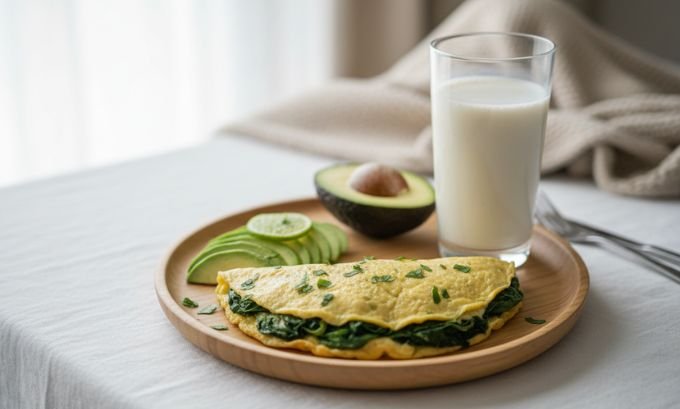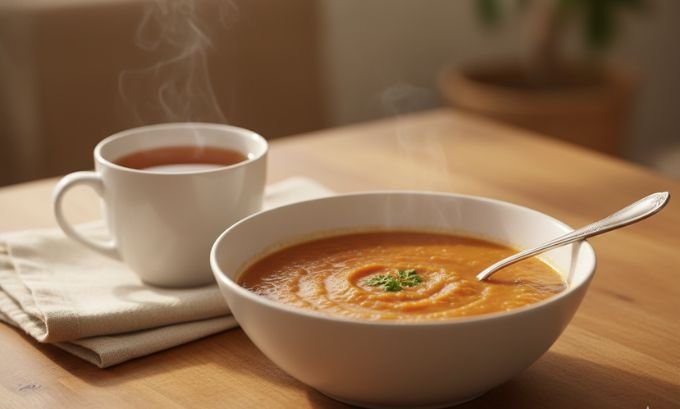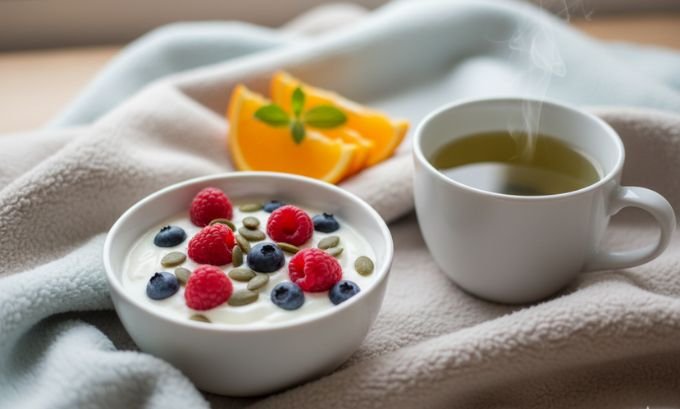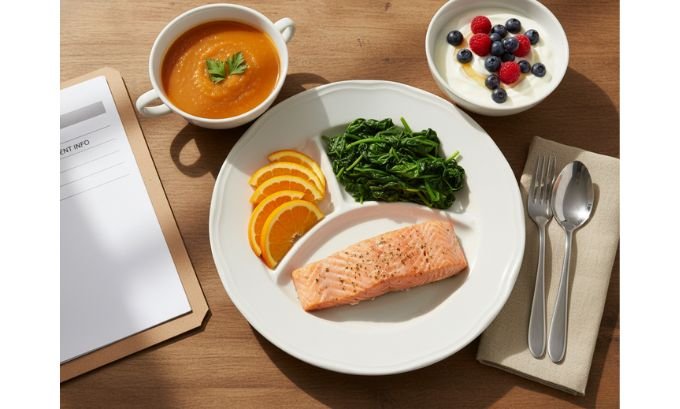Facing chemotherapy often brings more questions than answers, especially around how to eat well while supporting your health. Want the best shot at staying strong and fighting infection? One of the most practical steps you can take is choosing foods to boost immune system during chemo. This article breaks down science-backed strategies, answers FAQs, and gives you real stories and tips you can use right now.
Table of Contents
Why Nutrition Matters During Chemotherapy
Chemotherapy can suppress your immune system by lowering your body’s White Blood Cells (WBCs), making you more prone to illness. What you eat fuels your body’s defenses, helping replenish WBCs and support treatment.
Cancer-fighting drugs don’t discriminate. Along with attacking cancer, they can damage healthy cells in your Bone Marrow, which is where White Blood Cells are made. As a result, immune protection takes a hit, most noticeably during the “nadir”—the period about a week after treatment when blood counts are at their lowest. During this window, infections can quickly become urgent medical concerns, especially if you develop Febrile Neutropenia (a dangerous combination of fever and very low WBCs).
Doctors sometimes prescribe immune-supporting drugs like Colony Stimulating Factor (Filgrastim), but food remains a foundational tool for recovery. Supplying your body with the right nutrients supports cell repair, fights fatigue, and empowers your immune system’s comeback.
Practical Approaches: Building Your Immune Defenses with Food
Focusing on balanced meals filled with protein, specific vitamins, and antioxidants helps your Bone Marrow rebuild the White Blood Cells you need.
Think of your body as a construction site—after chemo, supplies are depleted. To rebuild, your body relies on resources from what you eat:
- High-quality protein: Essential for new cell growth.
- Vitamin B12: Key for healthy blood formation.
- Folate: Especially found in dark leafy greens, vital for blood cell production.
- Immune helpers like vitamin C and zinc.
Always tailor dietary changes to your needs and consult your medical team.
A Journey Shared: Maria’s Experience Strengthening Her Immune System
Maria, a participant in the Cancer Freedom Program, found herself in a frustrating cycle: each chemo session left her immune system weaker, and her blood counts were often too low to continue treatment as scheduled. She felt isolated and anxious every time her oncologist mentioned “Delayed due to low WBCs”.
Working with her dietitian, Maria learned to adjust her meal routine. Breakfast included an egg and spinach omelet (for protein and folate), lunch featured lentil soup (easy to swallow, full of nutrients), and snacks rotated between Greek yogurt or nut butters. Instead of focusing on what she couldn’t eat, Maria embraced small, nutrient-rich meals she enjoyed.

By her next checkup, Maria’s White Blood Cells count had improved, allowing her therapy to proceed on time. More importantly, she felt empowered—able to contribute to her recovery through her choices.
Key Nutrients and the Foods That Contain Them
The most effective foods to boost immune system during chemo are rich in protein, Vitamin B12, and folate.
Protein: The Essential Building Block
- Why it matters: Repairs tissues, builds immune cells, and helps you recover after treatment.
- Best sources: Lean poultry (chicken, turkey), fish (salmon, mackerel), eggs, black beans, lentils, tofu, and Greek yogurt.
- Practical tip: If you struggle with meat, try blending Greek yogurt into smoothies or eating scrambled eggs, which are easy to digest.
Vitamin B12: For Healthy Blood and Nerves
- What it does: Fuels blood cell production in your Bone Marrow and fights fatigue.
- Top picks: Eggs, dairy (milk, cheese), fish, lean meats, and fortified breakfasts or plant milks.
- Consider: If you’re vegan, fortified foods or a B12 supplement (as approved by your care team) may be needed, since plants rarely supply B12.

Folate: Supporting Cell Growth
- Why it’s crucial: Helps make new White Blood Cells, especially when partnered with B12.
- Ideal sources: Dark leafy greens like spinach, kale, and romaine; also asparagus, avocado, lentils, and beans.
- Tip for low appetite: Steam greens until soft or blend into soups, which are gentle if you have mouth sores.
Supporting Players: Vitamin C and Zinc
- Vitamin C: Boosts immune function and repairs tissues. Look for citrus fruits, strawberries, bell peppers, and broccoli.
- Zinc: Essential for developing immune cells; found in pumpkin seeds, chickpeas, beef, and whole grains.
Strengths and Benefits: Why These Foods Help During Treatment
- Gentle for sensitive digestion: Most options are mild and work well in simple dishes.
- Density of nutrients: Each is loaded with what your immune system and Bone Marrow need to recover.
- Supports muscle and energy: Especially important when treatment saps your strength.
- Easy to mix and match: For example, adding spinach to eggs, or lentils to soups.
Common Challenges and Real-World Solutions
Chemotherapy often brings taste changes, fatigue, or trouble chewing. Here’s how to keep eating well:
- Nausea or taste disturbances: If red meat tastes metallic, switch to plant proteins (beans, tofu) or eggs. Use plastic cutlery to lessen metallic tastes.
- Low energy: Small, frequent snacks may be easier than big meals. Try smoothies or fortified soups.
- Mouth pain: Eat soft foods like oatmeal, steamed veggies, and yogurt. Avoid crunchy or spicy foods.
- Food safety: Skip undercooked animal products and wash produce thoroughly to avoid infections—your immune system is more fragile.
- Supplement risks: Not all vitamins are safe with chemo. Talk with your team before starting any new supplements.
If you want to explore more about foods that boost immunity faster, you can also check out this detailed guide in gogonihon.jp.net, mindjournal.co or mumbaitimes.net
At-A-Glance: Best Foods to Boost Immune System During Chemo
| Food | Nutrients Provided | Immune Support Role | Simple Ways to Eat Them |
|---|---|---|---|
| Chicken/Turkey | Protein, B12 | Cell repair and production | Shredded in soup, poached, or grilled |
| Eggs | Protein, B12 | Rebuilds immune cells | Hard-boiled, over-easy, or in omelets |
| Salmon, Mackerel | Protein, B12, Omega-3 | Anti-inflammatory, cell repair | Baked, in salads, or with grains |
| Spinach/Kale | Folate, Vit C | New WBC formation | Blended, sauteed, or in smoothies |
| Lentils/Beans | Protein, Folate, Iron | Energy, immune rebuilding | Pureed, in stews, or as spreads |
| Greek Yogurt | Protein, B12 | Gut and immune support | With berries or as a creamy base |
| Pumpkin Seeds | Zinc, Protein | Cell development | As snacks, blended in smoothies |
| Citrus/Berries | Vitamin C, Folate | Antioxidant support | Fresh, in yogurt, or as purees |
| Avocado | Folate, Healthy Fat | Cell membrane health | On toast, mashed, or in smoothies |

Trusted FAQ: Common Questions About Eating During Chemo
1. What are go-to snacks if I don’t have much appetite?
Try Greek yogurt, soft-boiled eggs, hummus with pita, or a smoothie with Greek yogurt and fruit.
2. Is it safe to use vitamin supplements?
Sometimes, but always consult your oncologist first. Some supplements, like antioxidants or herbal blends, may interfere with chemotherapy drugs.
3. Are there definite foods I MUST steer clear of?
Yes—raw or undercooked meats, unpasteurized dairy, sushi, and unwashed fruits or vegetables all carry extra infection risks.
4. My mouth is so sensitive. Any advice?
Eat soft, cool dishes—well-cooked oats, pureed soups, scrambled eggs, or soft fruit. Skip hot spices, acids, and crunchy items.
5. Will food alone always be enough to increase white blood cells?
Not always. Nutrition is key, but sometimes medications like Colony Stimulating Factor (Filgrastim) are also needed for recovery.
6. How soon after changing my diet could my immune system benefit?
Results vary, but some people notice positive changes within a few weeks, especially if paired with other healthy habits.
7. Can a plant-based diet meet my B12 needs?
Not naturally. You’ll need fortified foods or doctor-approved supplements if you eat no animal products.
If you’re living in Japan, you can easily find many foods that support immunity during chemo—like salmon, yogurt, and tofu—at TokyoMart.store
Wrapping Up: Your Next Steps for Immune Support
Keeping your immune system robust during chemo isn’t just about avoiding germs—it’s about providing your body with essential, cell-building foods each day. Centering your meals on foods to boost immune system during chemo helps your bone marrow recover, your energy return, and your outlook stay positive.
Make it easy: Keep pre-cooked proteins on hand, prep leafy greens ahead, try easy snacks like Greek yogurt or eggs, and work closely with your care team. Programs like the Cancer Freedom Program offer structured, evidence-based support and can be a valuable resource.
Every small, nutritious choice counts. Stay flexible, give yourself grace, and use food as a foundation for healing.
About the Author
Dr. Jane Peterson, RD, CSO
Dr. Peterson is a board-certified oncology nutrition specialist and director of the Cancer Freedom Program. With decades of hands-on experience, she’s guided countless patients through science-based nutrition for cancer care—always with a focus on compassion and clarity.

